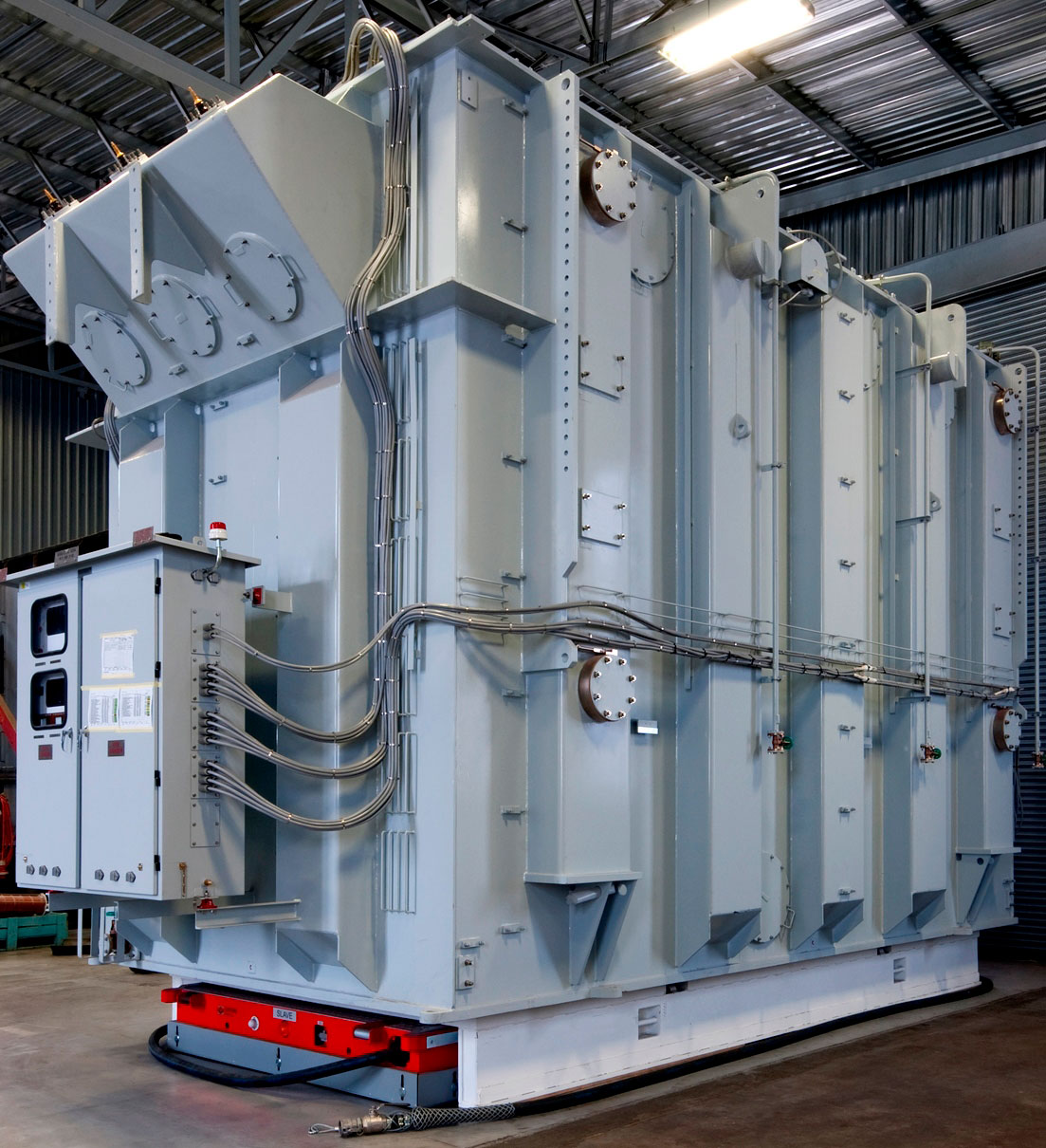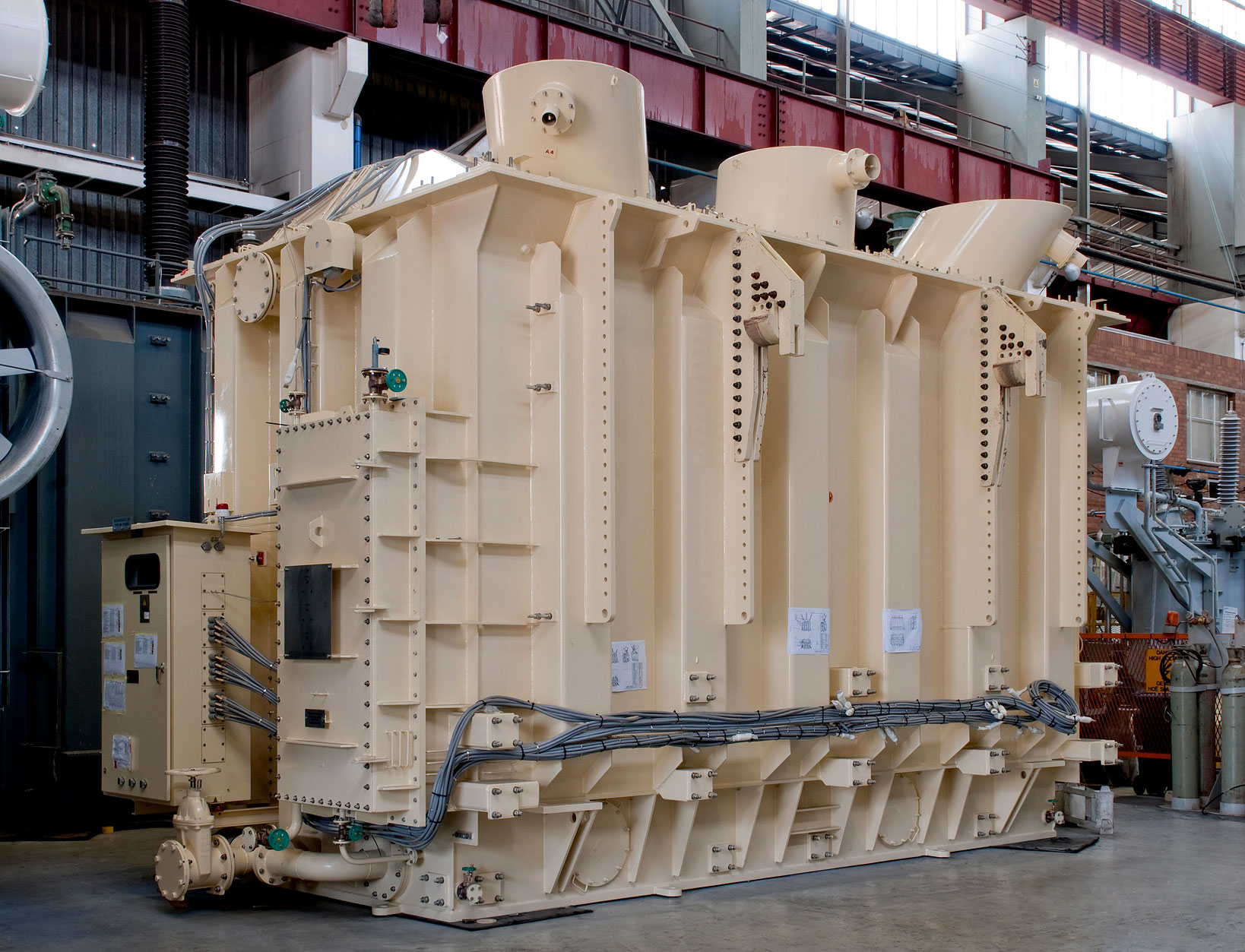SGB-SMIT POWER MATLA
New Transformer Factory Open and Thriving in Pretoria
New leadership and a state-of-the-art new facility is allowing power transformer manufacturing business SGB-Smit Power Matla to demonstrate its unique ability to produce size and quality. CEO Sibulele Dlova talks to Enterprise Africa about progress since joining the company last year.
Sibulele Dlova, CEO at SGB-Smit Power Matla, took the reins at the company in November 2022. At the time, the manufacturer of electrical transformers had lost some spark. The Covid-19 pandemic was still present, global logistics challenges were wreaking chaos across supply chain flows, and a devastating fire had wiped out the company’s factory capacity in Pretoria. When Dlova arrived, she quickly went about assessing and prioritising.
“My mandate is to turn the company around,” she smiles. “We have experienced challenges around finance, quality, and upskilling, and it is critical that I address those issues first.”
SGB-Smit Power Matla is the local arm of the wider SGB-Smit Group, based in Germany. A historic business in the South African manufacturing industry combined with a highly successful local empowerment organisation active across multiple industries, the structure provides the ideal connection for positivity. In South Africa, the company has two facilities, one in Cape Town and one in Pretoria, as well as an insulation business, Calidus. For more than 100 years, SGB-Smit has been a leading name in the manufacture of transformers for international markets, and after opening its doors in South Africa in 1944 and going through much transformation to bring it to where it is today, the company has become a driving force in supporting energy security in the country.
Dlova, an energy and engineering expert, immediately found hurdles including a lack of upskilling and the need for infrastructure investment, and set about finding a solution. Extremely technical and complex, manufacturing even a small transformer is an engineering challenge that involves multiple processes. “I spoke to my Germany counterparts and requested them to make more effort in terms of skills transfer and sharing best practices in transformer manufacturing.”
COMPREHENSIVE COVERAGE
In Cape Town, smaller distribution transformers – pole mounted transformers, mini subs and very small transformers which have a voltage level of up to 33 kV – are manufactured for local and export markets including the US and UK. “It is very exciting that this year, we have broken through to international markets. We are still servicing our local clients and we are now expanding our footprint.
“In Pretoria, we make bigger sizes, 20 MVA or 40 MVA and we go all the way up to 500 MVA. We are the only transformer manufacturing company in the southern part of Africa that can make these bigger 3A or 3B transformers,” explains Dlova.
But the Pretoria factory has been another key challenge for the CEO following the fire which broke out after a testing operation in 2021. While a successful evacuation ensured no one was hurt, equipment and infrastructure were damaged beyond repair. Thankfully, the decisions were taken to rebuild and Dlova is keen to see the facility reach its potential as soon as possible.
“Last year, we produced 36 units in total (partly because of fire and other issues). This year, in the first quarter, we have produced 19 units. Clearly, we are already on an upward trajectory and that is because we have got the people together and fixed some of the errors we had in the processes. We are formulating a formidable team and that is exciting,” she says.
Eskom is still the key client, and the company relies on business from Eskom to grow the manufacturing sector in the country. Eskom, metros, and municipalities all use transformers, and SGB-Smit Power Matla is hoping to penetrate metros and municipalities more.
From Pretoria, the local market is targeted with Eskom as a key client. Botswana Power Company, and NamPower are important utilities, and South Africa’s metros are also buyers of larger transformers as southern African communities battle against an ongoing energy crisis.
“It’s exciting to announce that we have started building the first transformer in the new Large Power Transformer (LPT), state-of-the-art factory in May,” says Dlova. The opening of this factory also has other advantages including job creation and preservation of skills.
With this impressive new asset, alongside a proven track record which shows many units in operation around the country, Dlova is able to focus on maximising the people power in the business.

PEOPLE POWER
Around 600 direct and indirect employees are supported by SGB-Smit Power Matla and the company is eager to nurture talent to assist in diversity and inclusions targets.
“Our staff is majority South African (98%) and we are aggressive about local upskilling. We take in students and women and train them, and we even train Eskom people. We are looking to employ more women and we are looking for more diversity and inclusion. As a female leader, my eye is on that so that we can continue to transform,” says Dlova.
“We will be recruiting this year, without a doubt. Since we restarted the factory, we have had to add more people and upskilling is also a part of that,” she adds. “Because we are a global company, we have had counterparts from Germany come through once or twice a month to knowledge share and skills transfer. We are starting to understand more about how business is done in Europe compared to how business is done in South Africa. That has been very useful and quite the eye opener for a lot of our teams.”
This wide knowledge base is essential considering the range of products on offer from SGB-Smit Power Matla. The engineering house produces small, medium, and large power transformers as well as shunt reactors. Three-phase and single-phase units can be manufactured, and auto-transformers, arc-furnace, locomotive and traction transformers, miniature sub-stations, NERs, NECs, NECRTs, and oil transformers are also included in the range. The company’s laboratory is also state-of-the-art, providing testing capability and innovation around transformer materials. Dlova wants to see this skillset put to use more in South Africa and export markets.
“The last few years have been tough. We had the fire, and we had Covid which meant we had to lose a few employees. Getting back to the point where we were operating pre-Covid and pre-fire has been quite difficult as we have to upskill many people,” she says.
“Support of local manufacturing on the continent instead of us continuously importing is vital,” she adds “We have local talent and we have local manufacturing companies that can produce, but sometimes we experience lack of support from local partners. When you look at the economy in South Africa, it is clear that investing in manufacturing can improve our economic performance. My vision is for us to double the capacity we have in the factories, and we are more than capable of doing that, but we need support and protection from our government.”

INDUSTRY TRANSFORMATION
The manufacturing industry in South Africa has been on the decline in the last few years with many factories closing down due to financial challenges. SSPM has also experienced its fair share of financial challenges, but it is still standing and aims to grow stronger. SSPM is a Level 1 BBBEE company that supports a high-quality list of smaller local suppliers in the wider transformer manufacturing value chain in South Africa.
Right now, the majority of transformers that leave the factory are for Eskom and a few metros. For smaller transformers, SGB-Smit Power Matla has good market share in the Western Cape but hopes to penetrate further across the country. Longer-term, Dlova hopes the industry can get to a position where transformers are readily available for utilities to buy ‘off the shelf’ for smaller units and reduced lead times for larger units. All this while not compromising on the quality of the product.
“South Africa is currently experiencing an energy crisis which requires us to be able to support Eskom and municipalities by producing transformers. Transformers have a lead time, and so we need to be able to get to a point where lead times for transformers are reduced and we are upskilling more people to make transformers This will happen when we have good planning, transparency, and good communication between customers and suppliers. It’s sad to look at our capacity as a factory and say that we are not at 50%, yet, as a country, we are going through a crisis of this magnitude. There is a lot more that we can do when it comes to contribution around energy security in the country and across southern Africa.”
OPEN FOR BUSINESS
The Large Power Transformer (LPT) part of the factory is open for business. The company and others in this critical industry are vital in the future energy security of the region. Dlova states that the company has made many improvements in the past few months and is looking forward to working with various partners by producing transformers in the new, fresh, state-of-the-art SGB-Smit Power Matla LPT factory in Pretoria.
“The factory is ready to service the Southern African market and the world, enabling security of supply through power evacuation in big transmission corridors,” she concludes, declaring the factories very much open for business.

